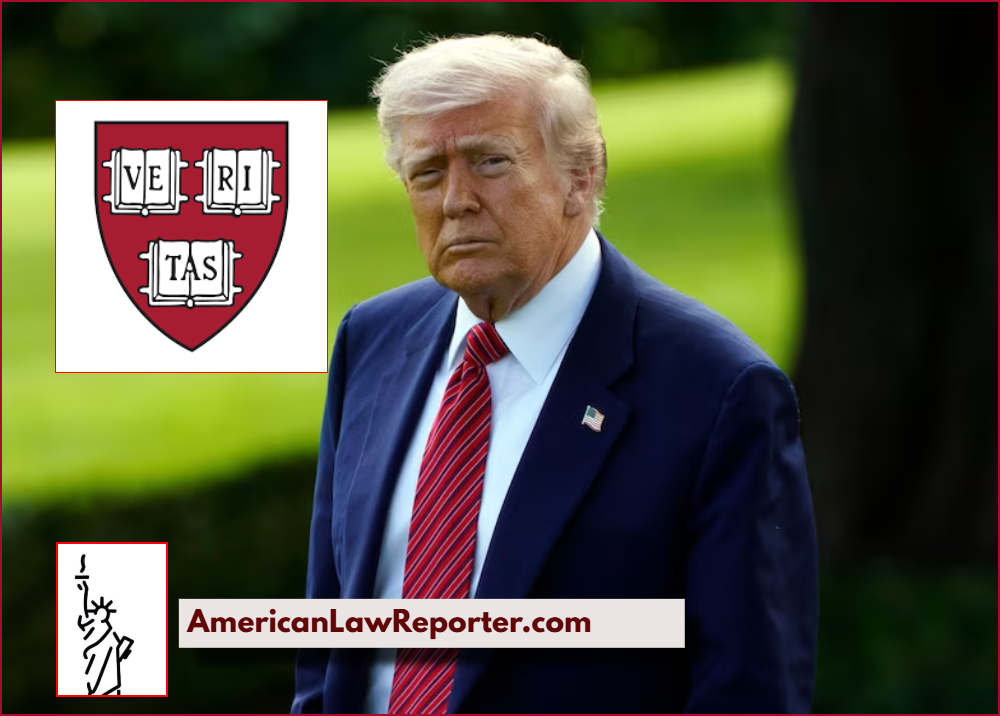The Trump administration’s recent decision to revoke Harvard University’s certification under the Student and Exchange Visitor Program (SEVP) marks a significant legal flashpoint.
That singular decision could reshape the boundaries between federal immigration enforcement, academic freedom, and constitutional protections for U.S. institutions.
This commentary unpacks the legal framework, examines due process concerns, and analyzes the implications for higher education institutions and international students nationwide.
1. SEVP Certification: Authority and Limitations

The Student and Exchange Visitor Program, administered by U.S. Immigration and Customs Enforcement (ICE) through Homeland Security Investigations (HSI), grants institutions the ability to sponsor F-1 and M-1 visa holders. To maintain this certification, schools must comply with federal regulations under 8 C.F.R. §§ 214.3–214.4, which include timely reporting of student enrollment, adherence to recordkeeping standards, and responsiveness to compliance reviews.
However, these rules also establish a procedural framework for revocation. Under 8 C.F.R. § 214.4(a), a school’s certification may be withdrawn only after written notice of intent, an opportunity to contest the allegations, and findings based on specific violations of program requirements—not based on ideological or political disagreements.
In this case, Homeland Security Secretary Kristi Noem publicly justified the revocation by accusing Harvard of “fostering violence, antisemitism, and coordinating with the Chinese Communist Party”—claims that, if unsubstantiated by actual SEVP non-compliance, likely exceed the permissible scope of revocation authority under existing administrative law.
2. Due Process and Arbitrary Enforcement
Harvard’s response—that the action is both “unlawful” and “retaliatory”—invites a constitutional analysis rooted in due process under the Fifth Amendment. While Harvard is not a public university, it is a U.S.-based institution with property and contractual rights that cannot be deprived without fair notice and a meaningful opportunity to respond.
The Trump administration’s action raises serious questions about:
- Procedural due process: Was Harvard given proper notice and opportunity to cure or contest alleged deficiencies?
- Substantive due process: Were the grounds for revocation legitimate under law, or were they politically motivated, targeting the university for its handling of pro-Palestine protests or perceived ideological leanings?
Should litigation ensue—as expected—the courts will likely weigh whether the government’s actions were arbitrary and capricious, violating the Administrative Procedure Act (APA), which governs agency decision-making. Courts have previously ruled that federal actions grounded in political animus or viewpoint discrimination are constitutionally impermissible.
3. Immigration Impacts and Breach of Student Expectations
Beyond Harvard, this move places thousands of international students in legal and logistical jeopardy. Under F-1 visa requirements, students must be enrolled in SEVP-certified institutions to maintain lawful status. The revocation means:
- Current international students at Harvard must transfer or risk removal.
- Tuition already paid may need to be refunded—opening Harvard to potential contract claims.
- Global academic mobility is disrupted, undermining U.S. leadership in higher education.
Students who entered the U.S. in reliance on Harvard’s SEVP certification could argue the revocation constitutes a breach of legitimate expectations, a doctrine recognized in administrative law and international student visa adjudications.
4. Political Context: A Test of Institutional Autonomy
While the Trump administration frames this move as part of a national security and anti-discrimination effort, critics contend it is a misuse of immigration policy to punish political dissent and suppress campus activism—particularly pro-Palestinian protest movements.
This parallels broader legal concerns around:
- Viewpoint discrimination under the First Amendment.
- Potential chilling effects on academic speech and campus protest rights.
- Federal overreach into the internal governance of private institutions.
The ongoing dispute also signals a troubling trend: the weaponization of immigration law to enforce compliance with ideological expectations, potentially violating the separation of powers and constitutional limits on executive authority.
Conclusion: A Precedent in the Making
The revocation of Harvard’s SEVP status—if allowed to stand—could set a chilling precedent. It raises core questions about whether the federal government can use visa policy as a blunt instrument of political coercion, even when there is no evidence of actual legal non-compliance.
Harvard’s legal team is expected to pursue judicial review, likely invoking both the APA and constitutional protections. This case will be closely watched, not only for its impact on Harvard and its international student body, but for its broader implications on immigration enforcement, academic freedom, and the limits of presidential power in an increasingly polarized legal environment.

